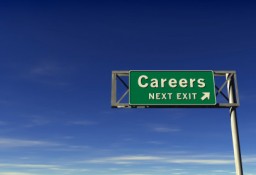Shame. That’s what a recent client told me he felt about his current situation. His employer was not satisfied with his performance on the job. They gave him an ultimatum: submit to a performance appraisal with strict KPIs or face termination.
My client had been hired by this company for a corporate finance role but after undergoing some restructuring a few years ago, they changed the terms and conditions of his employment by assigning him as Senior Product Manager, even though he had no experience for such a role.
His employer provided no training, so my client did the best he could to bring himself up to speed by learning relevant skills and knowledge on his own. But, according to his employer, that was not good enough.
My client wants to go back to his previous work in corporate finance but do so with another company. He feels shame that he couldn’t master the Senior Product Manager role. His confidence has been undermined by this negative experience. He asked me to help him navigate this difficult situation and find suitable employment.
Legal help
How to make an exit from his current employer? There are pros and cons to being terminated vs resigning–in terms of risks and benefits related to unemployment insurance, severance, reputation, and so on.
I am not an employment lawyer so I recommended my client engage one to help him sort through the repercussions of an exit.
Help from friends
In terms of finding suitable employment, we focused on the aspects of his corporate finance jobs that were consistently enjoyable and particularly satisfying. We identified former colleagues and contacts who appreciated his work in the past.
However, he still felt cobbled by feelings of shame due to his “failing” and didn’t want to disclose the reasons that he was looking for work. As a test run, we developed a script that he could use when conversing with family and friends about his situation. We revised it according to their feedback and his comfort level.
When he was ready, he reached out to a few contacts and was very surprised and happy how receptive they were to re-connect with him, which bolstered his confidence. One of them was ready to hire him on the spot but couldn’t do so due to budget constraints.
However, this contact referred him to a large employment agency that specialized in corporate finance roles. After some research, my client signed an agreement with that agency and was soon working in his field. His long-term goal is to move from a contract position to a permanent job with one of the clients he serves.
Overcoming highly charged emotions, like shame, requires time and attention…and a little help from our friends and career coach.









